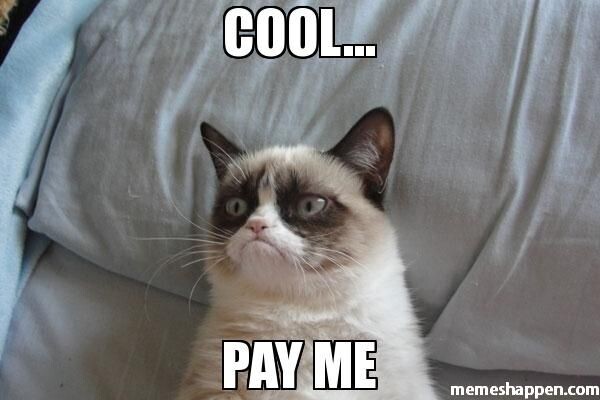The Defendant (or Plaintiff) should pay your Legal Fees! [Part 2]

We previously posted about the topic of a successful litigant’s right to be compensated for legal fees and the cost of litigation under New Hampshire law. What follows is an analysis under Massachusetts law.
The “American Rule”
Both New Hampshire and Massachusetts follow the so-called “American Rule” governing attorney’s fees, under which even successful litigants are responsible for paying their own fees and expenses in the absence of (1) an agreement that provides for an award of fees, (2) an applicable fee shifting statute, or (3) in limited instances, a statute, rule of court, or case law that imposes a sanction (usually in the form of fee shifting) against a litigant who has acted in bad faith, has raised wholly frivolous claims, or has engaged in conduct that served no other purpose than to drive up the cost of litigation for the other side. Gorelick v. Star Markets Company, Inc., 102 Mass.App.Ct. 219, 203 N.E.3d 610 (2023). The existence of an agreement is relatively straightforward, so I will focus on the latter two exceptions.
Fee-Shifting Statutes
The most commonly invoked fee shifting statute in Massachusetts (but certainly not the only one) is the consumer protection statute found at G.L. c. 93A. This oft-used statute provides for an award of attorneys fees for a successful consumer plaintiff, and double or treble damages in cases involving particularly egregious conduct, if a defendant has engaged in “unfair or deceptive acts or practices” in connection with a busienss transaction. The statute can also be applied in a business-to-business setting, but the standard to prevail in a strictly business context is significantly higher. Chapter 93A is a heavily litigated statute and there is no shortage of case law applying the statute to numerous and varying circumstances. It is worth noting that among the dozens of other fee shifting statutes in Massachusetts, are statutes that apply to landlord-tenant matters (Chapter 186), insurance claims (Chapter 176D), and wage claims (Chapter 149).
“Frivolous Claims”
Massachusetts has also codified at G.L. c. 231 § 6F fee shifting for claims that are “wholly insubstantial, frivolous and not advanced in good faith.” The statute has specific limitations: First, it only applies to parties who are represented by counsel or who were represented by counsel for at least “most” of the case. Second, it only applies to civil actions in the Supreme Judicial Court, Appeals Court, Superior Court, Land Court, Probate Court, and Housing Court, and is not applicable to proceedings in the Juvenile Court or the District Court. Third, it applies in any civil action except care and protection of children cases, mental health cases (such as civil commitments), sex offender cases, and adoption cases. To invoke the statute, the aggrieved party must bring a motion, which may be brought at any time during the proceeding after a court or jury has made any “finding, verdict, decision, award, order or judgment.” In Fronk v. Fowler, 456 Mass. 317, 923 N.E.2d 503 (2010), limited partners brought an action against the general partners in a real estate venture. They claimed, among other things, that the general partners had breached both the partnership agreement and the fiduciary duty owed to the limited partners by allegedly overcharging for their services and usurping certain business opportunities for themselves. The court found that all of the claims were wholly frivolous and without merit, explaining “[a] claim is frivolous if there is an absence of legal or factual basis for the claim, and if the claim is without even a colorable basis in law.” Id. at 329, 923 N.E.2d at 514 (internal quotes and citations omitted). In Fronk, the court found that the limited partners’ claims were factually unsupported by the express language of the partnership agreement and legally unfounded because the case should have been brought as a derivative rather than direct claim against the general partners. Upon finding that the claims were without merit, the court further found that the claims were frivolous “from the inception of the litigation,” but noted that circumstances could arise where a claim may initially be based on facts or legal conclusions that appear to be meritorious, but the good faith basis for the claim may change as facts develop through discovery and at some point become frivolous. Id. This is an important factor in determining the extent of the fees to be awarded. The statute provides for “reasonable counsel fees and other costs and expenses incurred in defending against such claims.” Naturally, if a claim is found to have been frivolous from the outset of the case, the reasonable fees would be calculated from the outset of the case. If it were to became apparent through the course of a case that an otherwise seemingly meritorious claim became frivolous in light of discovery and other developments, the court would examine “the manner and circumstances in which the [party] pursued the claim” and if the party asserting the claim continued to pursue it after its frivolity became apparent, that would “strengthen the inference of bad faith.” McCallum v. Safety Nat. Cas. Corp., 83 Mass. App. Ct. 1120 (2013). In that case, the court would calculate reasonable fees from that point forward.
You can contact Amann Burnett here if you have any questions about a legal issue you are facing.





